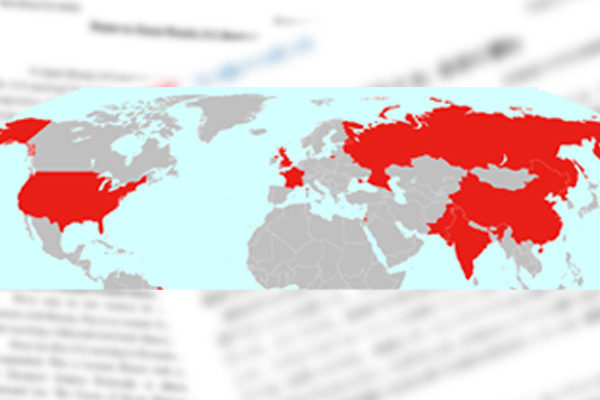Nuclear abolition is the ultimate goal and ideal of human beings. No matter how much we continue to advocate nuclear abolition, however, nuclear warheads are increasing in the real world. The global number of operational nuclear warheads has been increasing since 2018, reaching 9,615 at present. China has increased its number by 360 to 600 in the past seven years and North Korea by 35 to 50. In its 2024 annual report on Military and Security Developments Involving the People’s Republic of China, the U.S. Department of Defense pointed to the possibility of nuclear weapons use by China, saying “Beijing probably would consider nuclear first use if a conventional military defeat in Taiwan gravely threatened CCP [Chinese Communist Party] regime survival.”
Deterring nuclear attack on Japan is responsibility of politicians
Amid concerns that China, which has been engaged in an extraordinary nuclear arms buildup, may use nuclear weapons in the region, including against Japan, Japan’s politicians and media have turned blind eyes to the reality and refrained from discussing nuclear deterrence.
“Japan will lead the efforts of the international community to bring about a world without nuclear weapons,” Prime Minister Shigeru Ishiba said in his address to the Hiroshima Peace Memorial Ceremony on August 6. “This is Japan’s mission as the only country to have experienced the horror of nuclear devastation in war.”
I am not opposing the pledge to abolish nuclear weapons. However, what is required of a prime minister, who bears the responsibility of protecting the lives of the Japanese people, is to strengthen deterrence against nuclear threats—namely, to establish a posture that ensures Japan will never again be subjected to a nuclear attack. Isn’t it the responsibility of the top leader to lead public opinion in Japan to strengthen this nuclear deterrence?
Inevitable revision of non-nuclear principles
The U.S. Trump administration is advancing the development of vessels armed with sea-launched nuclear cruise missiles (SLCM-N), with deployment planned for the 2030s. Submarines or surface ships armed with these nuclear Tomahawks are likely to play a role in protecting Japan from nuclear threats in an emergency.
When the U.S. requests Japan to allow these nuclear-armed vessels to call at Japanese ports for their resupply and maintenance and their crews’ rest, the principle of not permitting the introduction of nuclear weapons—one of Japan’s three non-nuclear principles—would pose a significant obstacle. If U.S. nuclear-armed vessels for defending Japan are not allowed to call at Japanese ports, the U.S. will surely doubt the significance of the Japan-U.S. alliance itself. Discussions that take such scenarios into account cannot be avoided at the very least.
It has been repeatedly pointed out in Washington that the day when the U.S. alone will no longer able to deter China is approaching and that it is increasingly difficult for the U.S. to simultaneously deter the three nuclear powers of China, Russia, and North Korea. This August marks 80 years since the atomic bombings of Hiroshima and Nagasaki. It must once again be emphasized that Japan’s current circumstances are far too severe to allow continued evasion of serious discussions on nuclear issues.
Kiyofumi Iwata is a member of the Planning Committee at the Japan Institute for National Fundamentals. Formerly, he served as Chief of Staff of the Japan Ground Self-Defense Force.


